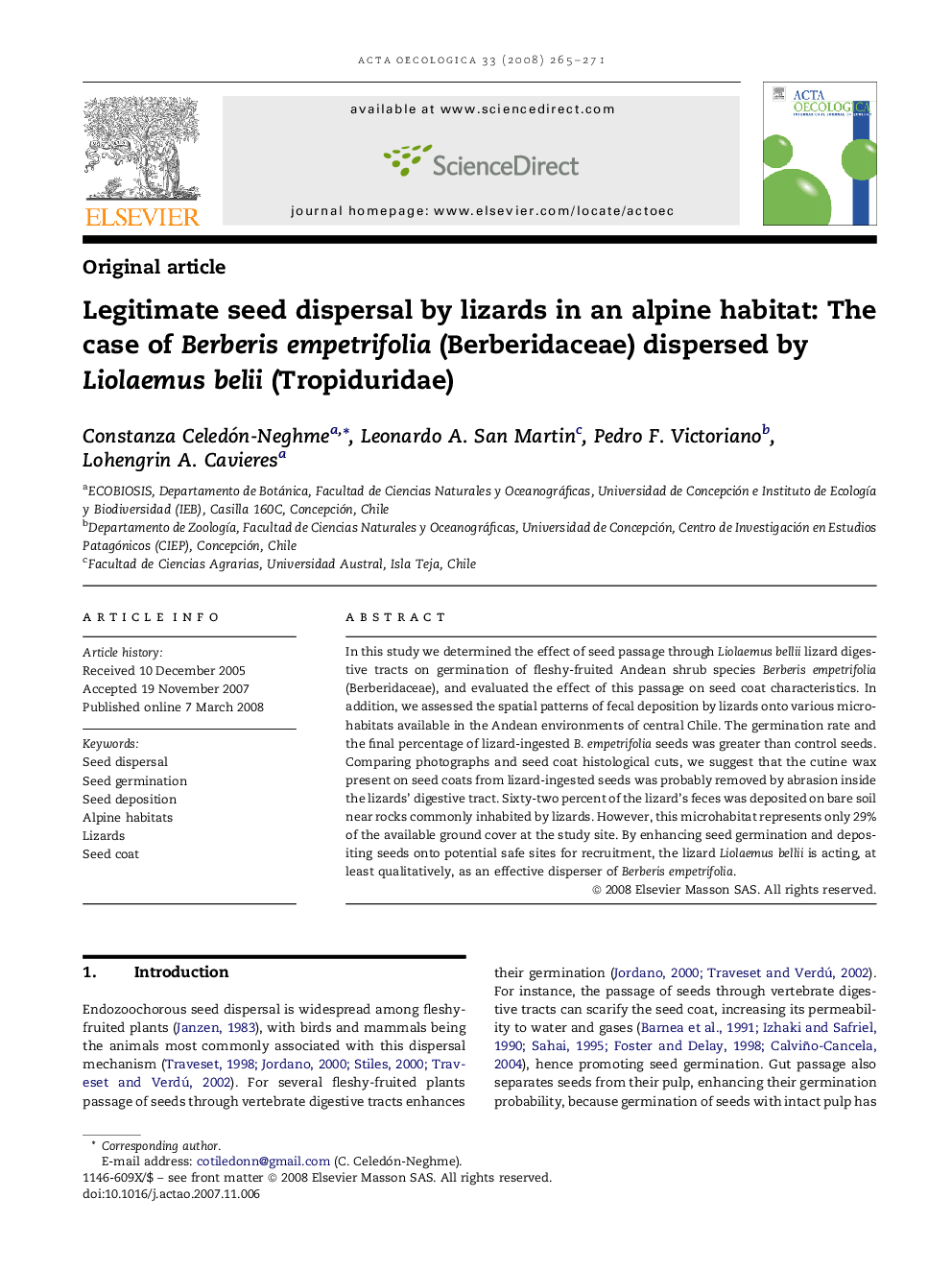| Article ID | Journal | Published Year | Pages | File Type |
|---|---|---|---|---|
| 4381547 | Acta Oecologica | 2008 | 7 Pages |
In this study we determined the effect of seed passage through Liolaemus bellii lizard digestive tracts on germination of fleshy-fruited Andean shrub species Berberis empetrifolia (Berberidaceae), and evaluated the effect of this passage on seed coat characteristics. In addition, we assessed the spatial patterns of fecal deposition by lizards onto various microhabitats available in the Andean environments of central Chile. The germination rate and the final percentage of lizard-ingested B. empetrifolia seeds was greater than control seeds. Comparing photographs and seed coat histological cuts, we suggest that the cutine wax present on seed coats from lizard-ingested seeds was probably removed by abrasion inside the lizards’ digestive tract. Sixty-two percent of the lizard's feces was deposited on bare soil near rocks commonly inhabited by lizards. However, this microhabitat represents only 29% of the available ground cover at the study site. By enhancing seed germination and depositing seeds onto potential safe sites for recruitment, the lizard Liolaemus bellii is acting, at least qualitatively, as an effective disperser of Berberis empetrifolia.
